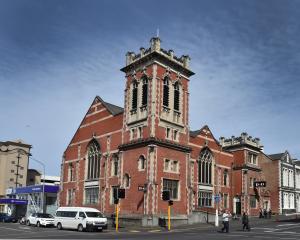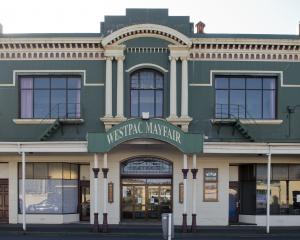
Two groups of young surf life-savers were struck down after training at St Kilda and St Clair beaches last week, with symptoms including vomiting.
Open cuts also became infected.
About six members of the Otago under-19 and open squads fell ill after training off St Kilda beach on Wednesday morning, and several more members of the Otago under-14 training squad became sick after training at St Clair later that afternoon, club members said.
Dunedin City Council staff yesterday questioned whether the illnesses were caused by water pollution.
Council project manager Brian Turner said bacteria counts in recent days had, at worst, been on the threshold of what was considered safe.
However, surf life-savers spoken to by the Otago Daily Times yesterday had little doubt the outfall was to blame, because of bacteria-laced sewage flowing from the Lawyers Head outfall pipe on to St Clair, Middle and St Kilda beaches.
All three beaches were closed again yesterday after water tests were found to be unsatisfactory, but that did not stop dozens of surfers and some swimmers from having a dip in the surf on a hot morning.
One of those to fall ill on Wednesday, Brighton club member Hamish Taylor (12), went to a doctor after contracting gastroenteritis and vomiting hours after training at St Clair.
"I couldn't keep anything down.
"I was just throwing up all night," he said yesterday.
His father, Greg Taylor, said his son had been "violently ill", and medical advice from their doctor was the illness was caused by bacteria in the water, "no two ways about it".
The incident left Mr Taylor and his wife "quite upset".
"We shouldn't have pollution at the beaches like this.
"It's appalling," he said.
St Clair Surf Life Saving Club chairman Antony Mason, who also fell ill on Wednesday night, said the beaches' bacteria problem was well known.
Mr Mason said the council's water tests were too infrequent to protect beach-goers.
The tests were carried out each day at 9am but results took 24 hours, meaning beaches could remain open for a day even if bacteria counts were high, he said.
Wednesday's training sessions took place when the beaches were still open but St Clair beach was later closed - due to a high bacteria count - the following day, he said.
"Everything is a day late - that's our perception, anyway."The council's use of two warning signs also seemed inadequate, as many visitors were unaware of beach closures, while surfers often arrived before signs were changed, he said.
Volunteer lifeguards received "a heap of stick" when telling some swimmers not to go into the water, and the sewage plume raised health and safety issues for lifeguards performing their duties, he said.
"If our kids get hepatitis, who's going to be responsible for that? I think we are allowing people to get sick out there and I think we have a moral obligation to look after it."Mr Turner, who is in charge of the Tahuna project, defended the water testing regime, saying regulations only required weekly testing at the beaches but the council tested daily at this time of year to minimise problems.
Moving to a 12-hour testing cycle had not been discussed, but was not expected to be necessary once the Tahuna pipeline was operational, he said.
St Kilda Surf Life Saving Club liaison officer Stefhan Brown was also among several from his club to fall ill on Wednesday, although he could not prove it was caused by the pollution.
"A smart man would put money on saying it was," he told the Otago Daily Times.
Council city environment general manager Tony Avery, contacted in Christchurch yesterday, was unaware of yesterday's beach closures but said the imminent commissioning of the Tahuna outfall project was aimed to solve the ongoing bacteria problem.
"We are dealing with it.
"It's taking some time, obviously . . . we are obviously not happy about it either," he said.












